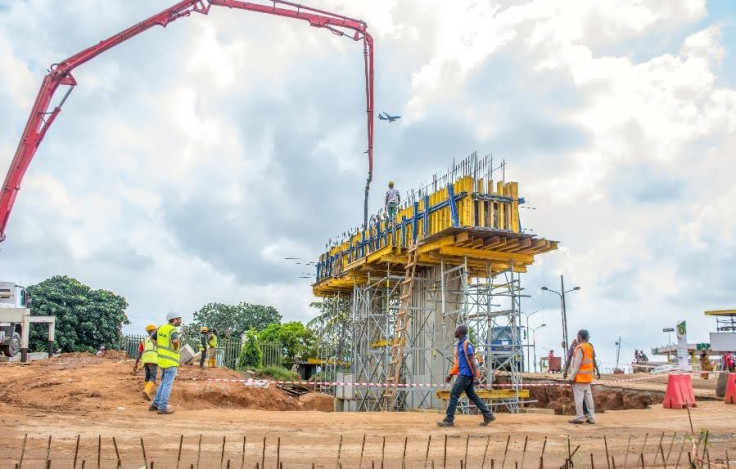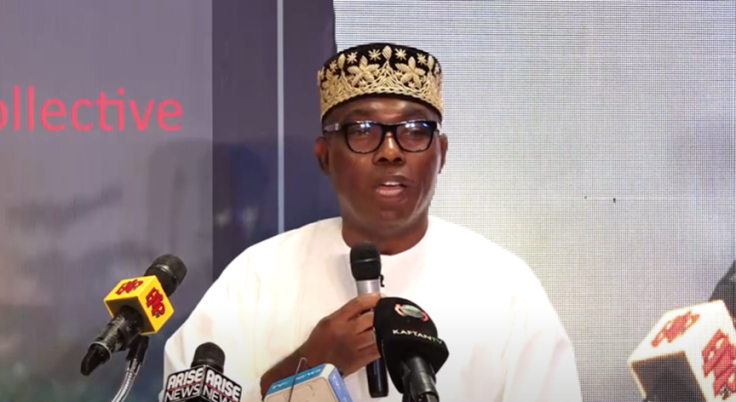Global Companies Are Wary of Doing Business in Nigeria… Prince Adewole Adebayo Wants to Change This
With corruption crippling Nigeria's growth and youth disillusionment rising, SDP's Prince Adewole Adebayo pledges sweeping reform, US investment, and 30 million new jobs

Despite Nigeria's immense economic potential, primarily owing to its youthful population, it has long been plagued by deep-rooted systemic corruption, which has negatively impacted economic growth. In the past decade, analysts have continued expressing amazement as to why a country with such vast potential has seen per capita GDP decline by almost one percent annually.
Attempted reforms by the current Tinubu-led administration have not gone far enough in addressing the issue, with major trading partners, including the UK, continuing to warn businesses about operating in the country.
Entrepreneurs looking to set up shop in Nigeria have long had to contend with a seemingly anti-business environment catalysed by bureaucratic red tape and systemic corruption. In the World Bank's final Ease of Doing Business Report published shortly before the onset of the global pandemic, the country ranked 131 out of 190 global economies.
In the years since, there have been few signs of improvement. Nigeria recently saw itself added to the Financial Action Task Force's (FATF) notorious 'Grey List,' typically reserved for countries with significant deficiencies in anti-money laundering and counter terrorism financing, a natural red flag for those mulling potential investment opportunities.
Such developments have seen policy experts, politicians, and Nigerians alike call for lasting change, calls which have fallen largely on deaf ears. Rampant corruption continues to undermine not just economic growth, but also the country's democracy and governance.
The 2023 presidential election is demonstrative of the growing disillusionment with Nigerian politics and the current political cohort. With a turnout of under 27 percent, more than eight percent less than in 2019, Nigeria's democracy is in distress.
Demands for political change continue growing, with a recent national survey indicating that 83 percent of Nigerians have little or no trust in the Tinubu administration. More than half of Nigerians are 'disappointed' in the current state of their country, the worst results since 2019.
What is therefore uniting Nigerians is not opportunity, but struggle.
With public discontent rising, Nigerians are looking beyond the usual suspects to turn the tide.
One leading voice in this movement is that of Prince Adewole Adebayo, the leader of the Social Democratic Party (SDP), who has aspirations to become President of the Republic himself in 2027.

A veteran lawyer and entrepreneur, Adebayo has emphasised the need to provide socioeconomic opportunities to all Nigerians through the eradication of poverty.
'Poverty in Nigeria is a creation of misgovernance,' he explains, adding that 'bad government policies over time have ruined our currency, mismanaged the economy, and led to corruption, and that is what is bringing about poverty.'
Adebayo has previously stated that, if elected, he will eradicate Nigeria's poverty in 18 months. While other candidates have pledged similar, it appears that this time around, there is finally a solid plan of action.
Among other things, Adebayo has pledged to curb the stealing of crude oil, which, by some estimates, has totalled more than USD $25bn (£18.8 billion) in 23 years, reduce government costs, and prioritise capital expenditure.
A proven entrepreneur himself, Adebayo has pointed to his close ties with Nigeria's greatest investor, the US, and a preliminary agreement with the US Chamber of Commerce, which could see 2,000 American companies invest in the country.
It is hoped that such measures can help create over 30 million jobs, which will itself create a burgeoning middle class and directly support both small, medium, and large-scale business owners.
Speaking at an event earlier this year, Adebayo reiterated the importance of replacing current self-interested politicians with those elected purely to serve Nigerians' best interests, a welcome change of approach in Nigerian political affairs.
'Until economic crimes are punishable, ease of doing business will remain a myth', he explained, before emphasising that rules must be set 'by the people and enforced by independent referees,' rather than those with commercial interests.
Outside the legal profession, Adebayo is working to revitalise the SDP ahead of the 2027 election, which is set to be the most consequential Nigerian election in decades. The party must stand unified behind such a flagbearer and provide this steady pair of hands with the tools needed to achieve success at the polls.
Nigeria stands at a crucial crossroads. It has long had all the ingredients needed for long-term prosperity, but for too long has been scavenged by those in senior positions of responsibility.
Should the country opt to change course, there are a few things stopping it from becoming a true economic power. With an average age of just 18, the right investment could see Nigeria's youthful population fast become a tech powerhouse and major AI player rivalling even Gulf states.
Until citizens vote for such change, however, Nigeria's immediate economic conditions are bleak. Inflation remains more than twice the pre-pandemic level, and despite a new government methodology for calculating unemployment, all indicators suggest it remains high, with very limited formal employment opportunities throughout the country.
In particular, Nigerian youth must turn out in force to unseat an incumbent power content with the status quo, which is proving successful only in holding the country back.
The challenge ahead for those like Prince Adebayo is to galvanise the entire electorate and ensure that the rhetoric Nigerians have long heard can finally be turned into meaningful action.
© Copyright IBTimes 2025. All rights reserved.





















